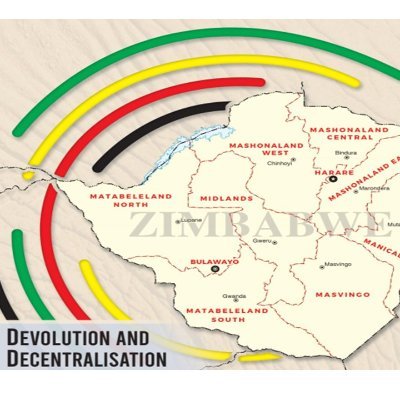
Macheso still a force to reckon with
February 18, 2022
Buhera rural communities bemoan exclusion in devolution processes
March 2, 2022Zimbabweans ignorant of constitutional issues: Human Rights Lawyer

L-R: MISA Zimbabwe advocacy officer Malvern Mkudu and MISA Zimbabwe board member Kelvin Jakachira with the incoming Manicaland provincial advocacy committee, chairman Ngoni Dapira, committee member Tariro Guwila, secretary Simbarashe Muparaganda and committee members Evidence Chenjerai and Felix Matasva respectively, after the provincial advocacy committee elections held on Monday.
…New brooms elected for MISA Zimbabwe Manicaland advocacy committee
Ngoni Dapira
RENOWNED human rights lawyer, advocate Passmore Nyakureba has castigated the growing ignorance by Zimbabweans, and the media, as the watchdog of society, towards constitutional issues.
This was said on Monday during a Media Institute of Southern Africa (MISA) Zimbabwe workshop for journalists in Mutare to unpack the Private Voluntary Organisations (PVO) Amendment Bill (H.B.10,2021).
Nyakureba who also serves as a councillor of the Law Society of Zimbabwe said if not interrogated well, the PVO Amendment Bill may shrink the democratic space of non-governmental organisations under the excuse of fighting against international anti-money laundering and combating the financing of terrorism, which Zimbabwe ratified to be a part of under the global Financial Action Task force (FATF).
Founded in 1989, the FATF is an inter-governmental policy making body whose purpose is to establish international standards, and to develop and promote policies, both at national and international levels, to combat money laundering and the financing of terrorism.

MISA Zimbabwe advocacy officer Malvern Mkudu (left) with advocate Passmore Nyakureba during his presentation.
“I just want to expose our ignorance as Zimbabweans, not just the media but lawyers as well and citizens in general. Our problem as a country is not that we are illiterate or we do not have reading material, but we need to have a culture of reading to fully comprehend our Bills and constitutional issues in general. Otherwise we will find ourselves always crying foul after some Bills sail through with little to no meaningful criticism,” said Nyakureba after doing a headcount of how many journalists present knew about the background of why there is now a PVO Amendment Bill, only to realise a few knew about it.
This workshop comes in the backdrop of public consultations being carried out countrywide by the Parliamentary Portfolio Committee on Public Service, Labour and Social Welfare on the PVO Amendment Bill. The committee which was split into two teams is gathering public views on the Bill in various places in Zimbabwe since Monday up to Friday.
According to its memorandum, the Bill has three purposes, to comply with recommendations made by the FATF, to streamline administrative procedures and allow for the efficient regulation and administration of PVOs and to prevent PVOs from undertaking political lobbying.
However, generally the PVO Bill is being regarded as oppressive as some critics cite that some of its provisions will overstep the independent space of NGOs and civic society organistions in executing their day to day operations in humanitarian aid work and defending human rights advocacy programmes in the country.
Nyakureba said there is need for the media to know the PVO Amendment Bill and other Bills, in and out, and simplify it for the public to better understand and critique from an informed view for national debate. In his critique of the Bill, advocate Nyakureba said whilst some amendments are justifiable to reasonably expose and regulate the operations of some NGOs, which he said have in the past been used as agents of money laundering, terrorism and regime change in political affairs of sovereign countries, it has its extreme clauses which may wind up impeding milestones made so far in fostering democracy in the country.
“The Bill must be clear that it wants to put penal views for non-compliance on registration issues rather than operative issues. But this Bill seeks to do both, registration and to monitor and supervise operations. This will mean if NGOs misstep they are easily barred and this will impede freedom of expression and democracy,” he said.
On the other hand, after the PVO Amendment Bill meeting in Mutare, MISA Zimbabwe held elections for the Manicaland provincial advocacy committee, which comprises of five members, in line with the organisations constitutional provisions and elections guidelines.
The founder and editor of the developmental news online publication Easterntimeszim, Ngoni Dapira was elected as the chairman whilst New Ziana’s Pungwe News editor Simbarashe Muparaganda was nominated as secretary. The three committee members who were selected were freelance journalists Evidence Chenjerai, Tariro Guwila and Felix Matasva. All the posts were uncontested. Chenjerai, Muparaganda and Guwila were retained in the new provincial committee whilst Matasva and Dapira come in as the new members. Dapira replaces Kenneth Matimaire who was last year in November elected into the MISA Zimbabwe National Governing Council (NGC).

MISA Zimbabwe advocacy officer Malvern Mkudu and MISA Zimbabwe board of trustees member Kelvin Jakachira (right) showing the sealed envelope with ballot papers to the paid up members before the election.
The presiding elections officer MISA Zimbabwe board of trustees member Kelvin Jakachira said the elections were free and fair. He also urged Manicaland journalists to trade carefully in the line of duty ahead of the 2023 elections. Jakachira said the deaths on Sunday at the Kwekwe rally by the newly formed opposition party, Citizens Coalition for Change (CCC) due to political violence is already an indicator of possible violent elections in Zimbabwe during the approaching by-elections this month and forthcoming 2023 elections. The Kwekwe rally left two CCC supporters dead and 17 others injured, with eight in critical condition.
“I would like to urge you colleagues to be very cautious as we draw closer to the by-elections to be held in March and the 2023 elections. As always said in journalism school, there is no story worth dying for. You need to also be ethical in your reportage and not be activists. Let’s also not allow our political preferences to dominate our work by being seen wearing political regalia. Let’s always be ethical,” said Jakachira.
The elected provincial advocacy committee members are expected to serve three years until the next elective annual general meeting.
MISA Zimbabwe was registered as a Trust on 27 August 1995 and established a fully-fledged Secretariat in August 1997. It is one of 11 chapters of the Media Institute of Southern Africa, which promotes and defends media freedom and freedom of expression across the Southern Africa Development Community (SADC) region. It is an independent membership-based organisation comprising of Board of Trustees, NGC, Advocacy Committees and Secretariat. A five-member NGC is elected by members every three years, and its role is to give policy direction to the Secretariat. MISA Zimbabwe membership comprises of journalists and other media professionals including media houses, online content creators, freedom of expression activists, bloggers and media students.



2 Comments
Congratulstions to the ew team, looking forward to work together
Thank you for following Easterntimeszim.